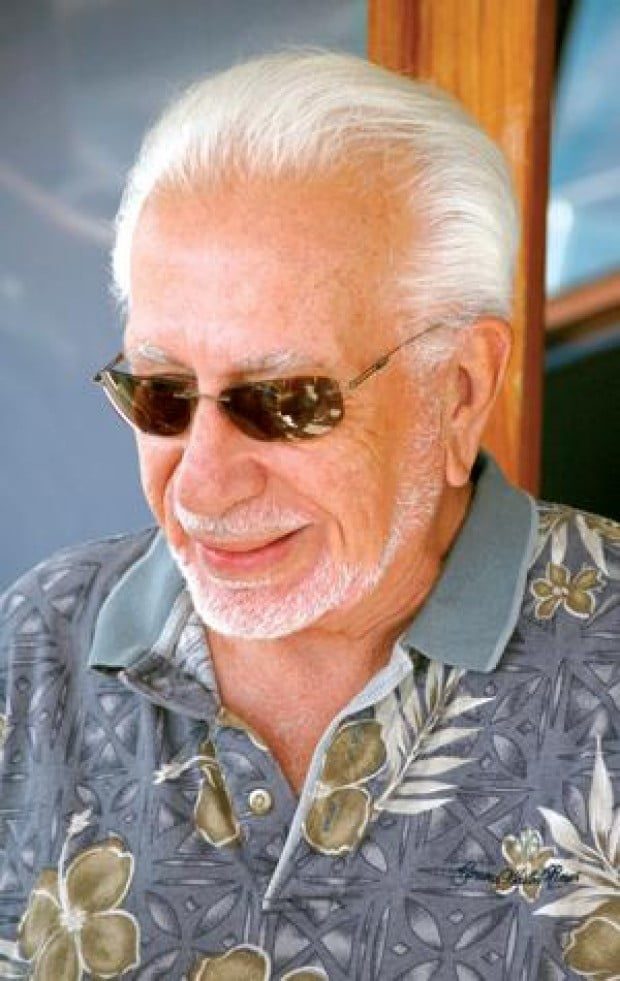MBA students, listen up. Spite may not be one of the seven heavenly virtues, but it can sure as hell be lucrative.
Forty years after stubbornly refusing to take a cash buyout for their former professional basketball team from the NBA in favor of a portion of four of its teams television revenues in perpetuity, longtime Malibu resident Ozzie Silna, 81, and his brother Daniel, 69, last month brokered a $500-million settlement to end the deal. Coupled with money already collected and other considerations, the brothers’ haul is expected to exceed $1 billion.
Spor ts Illustrated’ s Jon Wertheim reported the outlines of the deal on Friday, which Silna confirmed in a telephone interview with The Malibu Times.
“Yes, a settlement was made,” Silna said Friday. “And basically [the Sports Illustrated article] pretty much clearly describes all I can tell you about it.”
Routinely ranked as the greatest sports business deal of all time, the agreement was originally born more out of anger than business. In 1976, the Silna brothers were the frustrated owners of the St. Louis Spirits, a professional basketball franchise in the outlaw American Basketball Association (ABA). After years of competing with the dominant NBA for basketball fans, the ABA was folding, and the Spirits were not invited to join the NBA.
Anxious to own an NBA team and angry at being left out, the Silnas rejected the cash payment. Their lawyer, Donald Schupack, instead made a counteroffer. The four ABA teams joining the NBA—San Antonio, New Jersey, Denver and Indiana— would give the Silnas a one-time payout of $2.23 million. The Silnas would also receive one-seventh of each team’s national broadcast revenues—here’s the kicker—in perpetuity. The brothers received a total of $521,749 in 1980, according to court documents obtained by SI, the first year the contract vested. By the 1986-87 season, the annual payment to the brothers exceeded $1 million. For the 1999-2000 season, the brothers received more than $10 million; by 2010-11, the last season for which records are available, the brothers received $17.5 million, SI reported. After last season the total intake of Ozzie and Daniel Silna from the deal was $300 million.
At the time the deal was made, national TV was an afterthought for the NBA. In those days, “the NBA Finals aired on tape delay after the local news at 11,” Wertheim wrote. “There was no NBA League Pass or NBAtv.”
In 2009, the Silnas filed suit in federal court, arguing that under a broad definition of media revenue brokered in the original deal by Schupak they were entitled to digital and international revenues in addition to U.S. television revenues. A U.S. district court judge encouraged both sides to settle, which, according to SI, “was fine by the four teams — they had been trying for years to get out of the contract and with another NBA television deal on the horizon with the expiration of the current one in 2016 — ‘Could be close to $2 billion a year, if [NBA commissioner] Adam [Silver] does his job,’ says one NBA executive — the Silnas’ windfall would swell to $36 million annually.”
When asked why he and his brother chose now to settle, Silna cited age, and wryly hinted at providing for his five children and three grandchildren.
“I’m 81, I ain’t gonna live another 25 years,” Silna said in a telephone interview Friday. “…I believe that even under these circumstances, my children will be well taken care of.”
Silna remains fond of his two-year stint owning the Spirits, considered among observers to have been perhaps the most colorful and chaotic franchise even in the iconoclastic ABA. The team inspired a “30 for 30” documentary by ESPN Films titled “Free Spirits,” featuring players such as future Hall of Famer Moses Malone, enforcer Maurice Lucas and renowned headcase Marvin “Bad News” Barnes.
In one of the great ABA stories, Barnes, an athletic, 6’10” forward, once refused to board a team flight from Louisville to St. Louis, which due to a time zone change was scheduled to leave at 8 p.m. and arrive at 7:59 p.m. He rented a rental car instead, explaining, “I ain’t gettin’ on no time machine!”
When asked if he would rather own an NBA team today than have the settlement, Silna thought for a moment.
“Right now? No. I’m too old. I can’t shoot baskets like I used to,” he said. “I wanted an NBA team then, but that’s when the NBA excluded me.”

